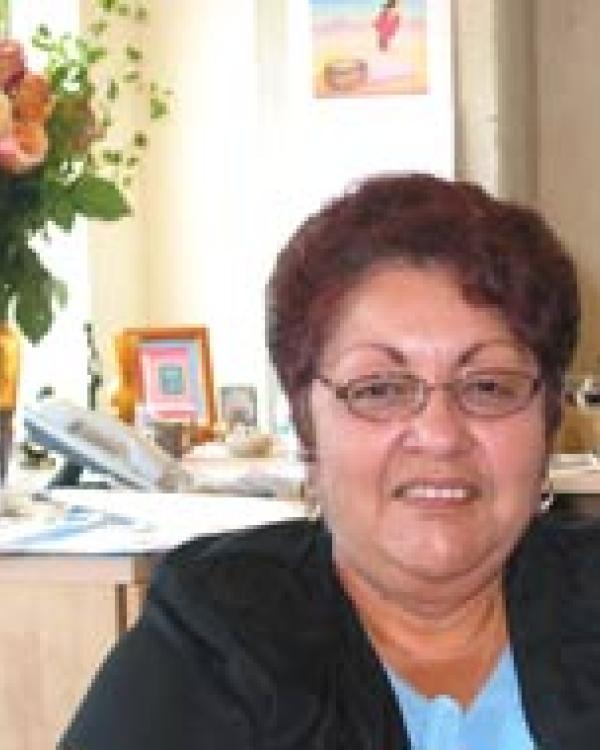
Anyone who has known Yolanda Garcia during her 38 years of work on the UC Santa Barbara campus (she actually entered as a frosh in 1966) will not be surprised to learn that while she’s officially retiring as Assistant Vice Chancellor of Student Academic Support Services, she’s going to stay on part-time. Indeed Garcia will continue working on one of the most important parts of her job, and the part most connected with her time as a student in the Gevirtz School (M.Ed. 72, Ph.D. 98) – the research aspect.
“We [Student Affairs] have this big gap between research and practice, and I had the opportunity to bridge that gap,” Garcia explained during a recent interview. “We tend to make judgments based on our experience and not data. What does the literature say? How does that inform you?” The major research project she will help lead will explore the mental health needs of students. Conducted with several other UC campuses, outside agencies, and Eduventures, the project will, she said, “Help us see what faculty and staff know and not know about these services.” She will also continue to bring together the services – from Career Services to the Disabled Students Program – that have been under her purview. She explained, “It’s very much a part of my training, creating a matrix of services – what are you missing? Are you duplicating each other’s efforts?”
Garcia received her M.Ed. in Counseling and then began her first UCSB career job as a counselor for the Educational Opportunity Program (EOP) that she’d eventually direct. “Jules Zimmer was my Masters advisor – we came into the School the same year,” she recalled. “Those counseling skills I learned I use very day, learning how to listen and analyze and give people perspective. Now I use those same skills with staff.”
Her second Masters and Ph.D. in Educational Leadership and Organizations meant she “had to learn again what it meant to be a student. It was nothing like I thought it would be; I was the same age or older than the faculty. In did a lot for me in appreciating what students have to go through.” Garcia had nothing but praise for her dissertation committee of Lorraine McDonnell, Judith Green, and Russ Rumberger, and claimed, “They trained me how to think in a different way.” Garcia wrote her dissertation on theBakke decision and the UC’s response. She was a panelist at the Gevirtz School Policy Day event “Realizing Bakke’s Legacy: Equal Opportunity and Access to Higher Education” in May to discuss how she saw the effects of Bakke from her position as Assistant Vice Chancellor of Student Academic Support Services; “sitting on that panel was like a return,” she said.
As for the differences between UCSB now and in the mid 1960s, she insisted, “It in no way, shape, or form feels the same as when I started. It’s gone from a place that had lots of dirt and mud and open space to planned facilities that try to build areas where students, staff, and faculty congregate.” Indeed, our interview took place in Garcia’s office in the recently opened Student Resource Building, which encourages interaction and engagement across student groups. But the physical changes might be the least significant, for she added, “Now we have ethnic studies, women’s studies, ecology and environmental studies. Those fields weren’t’ even fields then. There’ve been tremendous changes in the staff, too. I was one of literally a handful of Chicano staff – you could know every person of color by name then. You couldn’t now.”
Still, Garcia, even while “retiring,” will never give up on her goal of doing everything to help UCSB retain low-income first generation college and ethnic students. She claimed, “The school has changed a lot…not that we can’t change more.”